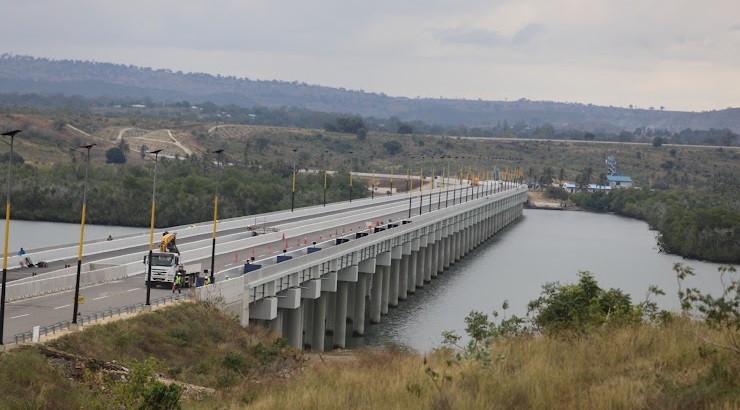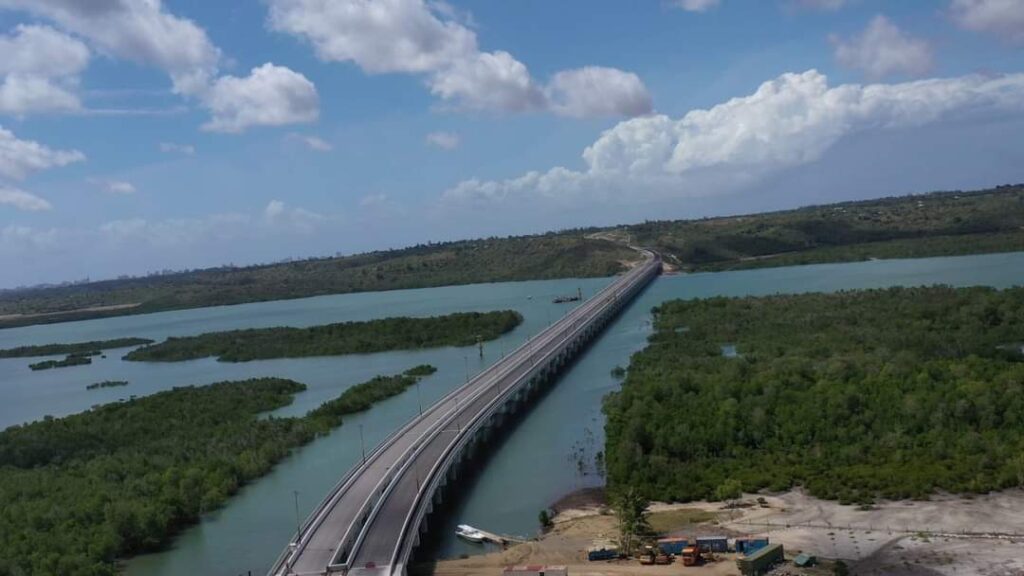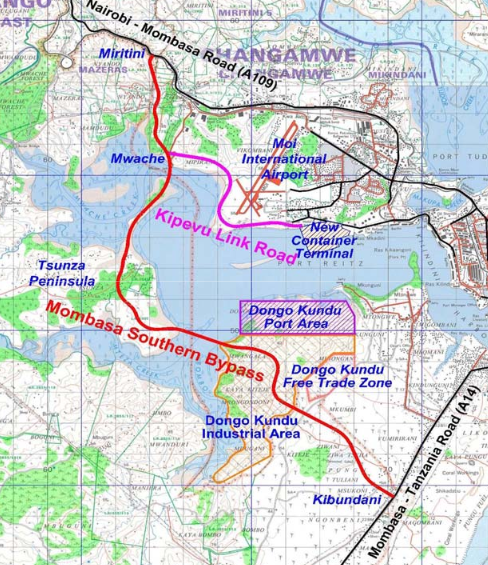Infrastructure
Dongo Kundu Bypass Opens to Public Amid Tolling Plan

Dongo Kundu Bypass has been opened to the public, marking a significant milestone in a project designed to alleviate congestion and boost connectivity in Kenya’s South Coast.
The 17.5-kilometre dual carriageway, also known as the Mombasa Southern Bypass, which connects Miritini to Kwale County, promises to significantly shorten travel times.
The bypass features three bridges: the Mwache Bridge, spanning 660 metres; the Mteza Bridge, an astonishing 1,440 metres long, which will become the longest bridge in Kenya and the region; and the Tsunza viaduct, measuring 690 metres.
The Dongo Kundu Bypass is expected to reduce travel times from the Miritini Standard Gauge Railway station to Diani from over 2.5 hours to just 45 minutes.
A key highlight of the dual carriageway is the Mteza Bridge, seven times longer than the Nyali Bridge, expected to reduce the time for crossing to and from the South Coast.
It will also serve the Dongo Kundu Special Economic Zone.
Kenya National Highways (KeNHA) Deputy Director Samuel Ogege confirmed the handover of the road to the government. “Though the bypass is in use, an official ceremonial opening will follow to celebrate this landmark project,” he said.
Construction of the Dongo Kundu Bypass, undertaken by the China Civil Engineering Construction Corporation (CCECC), began in July 2016.
RELATED: Kenya Scouts for Wealthy Investors to Build Toll Roads
According to KeNHA, the Mwache-Tsunza-Mteza section of the bypass is in its final stage of surface dressing, road marking, installation of guard rails, road signs, and street lighting.
This section of the project cost Sh24 billion, with the total project estimated at Sh40 billion. Phase one, completed in 2018, included roads connecting Mombasa Port, Moi International Airport, and the Mwache area, costing Sh11 billion.
Phase three, finished about five years ago, included the Mteza-Kibundani road, serving the Dongo Kundu Special Economic Zone and costing Sh4 billion.

The project was funded with loans from the Japanese government, and the Kenyan government is expected to repay the debt over 30 years at an interest rate of 1.2%, with a grace period expiring in 2024.
Meanwhile, KenHA has disclosed plans to develop a tolling policy that will require motorists to pay to use the Dongo Kundu Bypass and other key roads countrywide.
“Once approved, this policy will guide consideration of such a project as Dongo Kundu Bypass for tolling,” said Samwel Kumba, KeNHA’s deputy director of communications.
RELATED: Kenya Pushes Plan to Use Tolls to Fund New Highways
Other roads earmarked for tolling include the Nairobi-Mau Summit Road, Nairobi Southern Bypass, Thika Superhighway, and the Kenol-Sagana-Marua Road.
The Nairobi Expressway is currently Kenya’s only toll road.
The government introduced road tolls in the late 1980s, but tolling was scrapped less than a decade later in favour of the road maintenance levy following public outcry over widespread corruption at the toll stations.
Dongo Kundu Bypass Map















